Tennis Coaching Certification Course
Complete the 3-hour course offered by Play! Tennis and become a certified coach. This proprietary program covers the fundamentals of coaching and equips you with the basic skills to conduct tennis lessons.
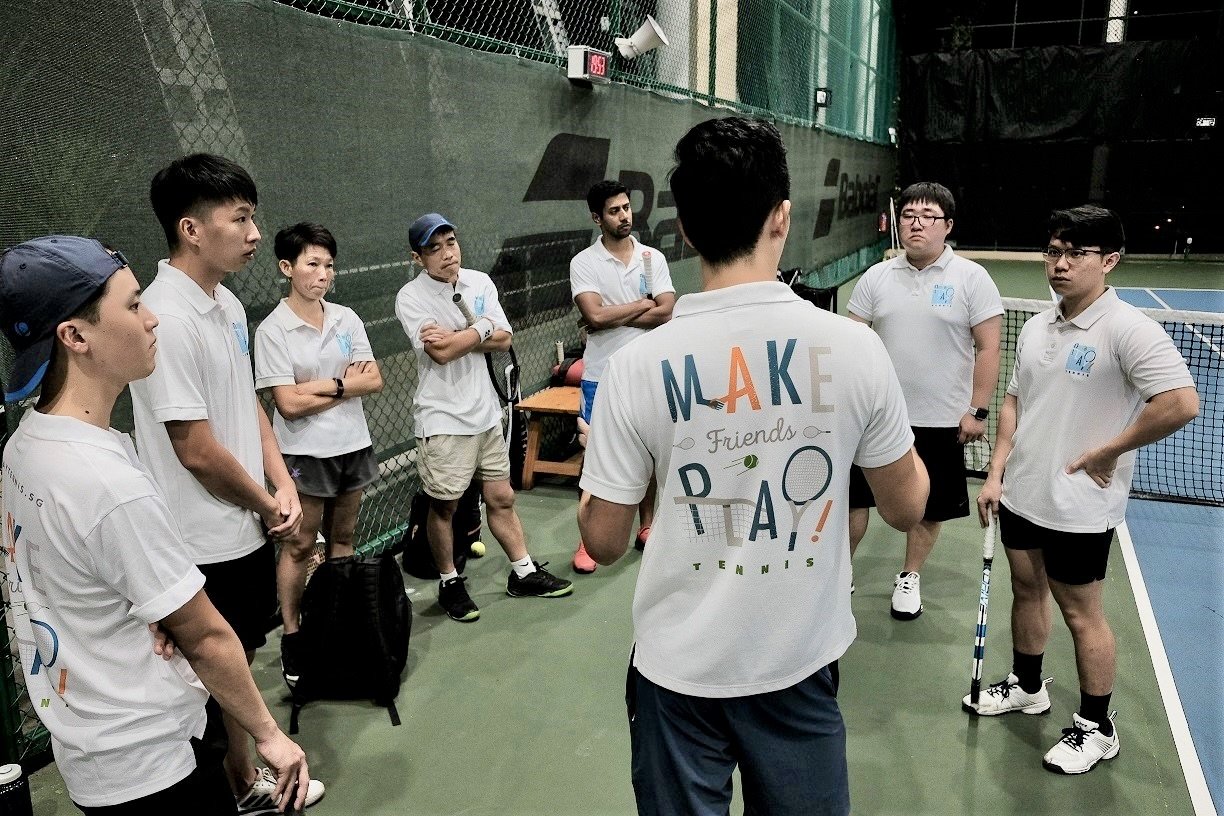
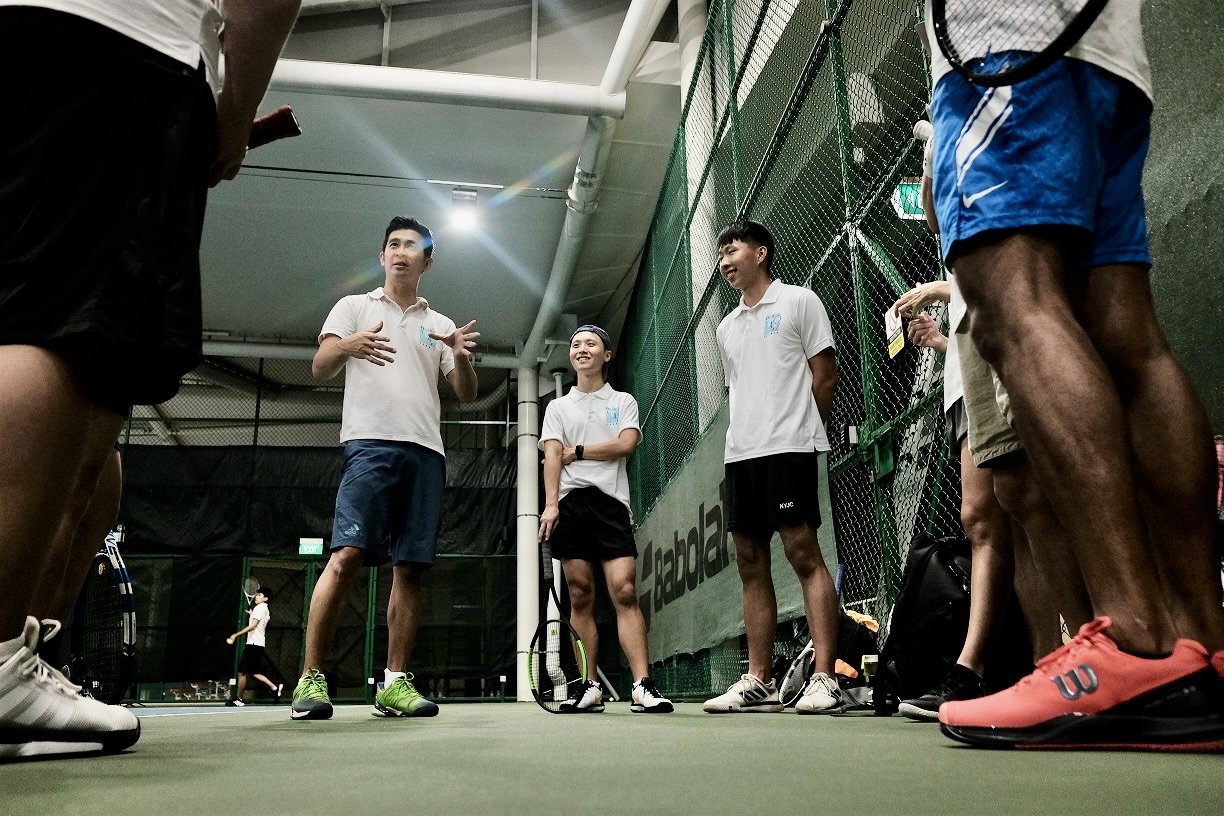
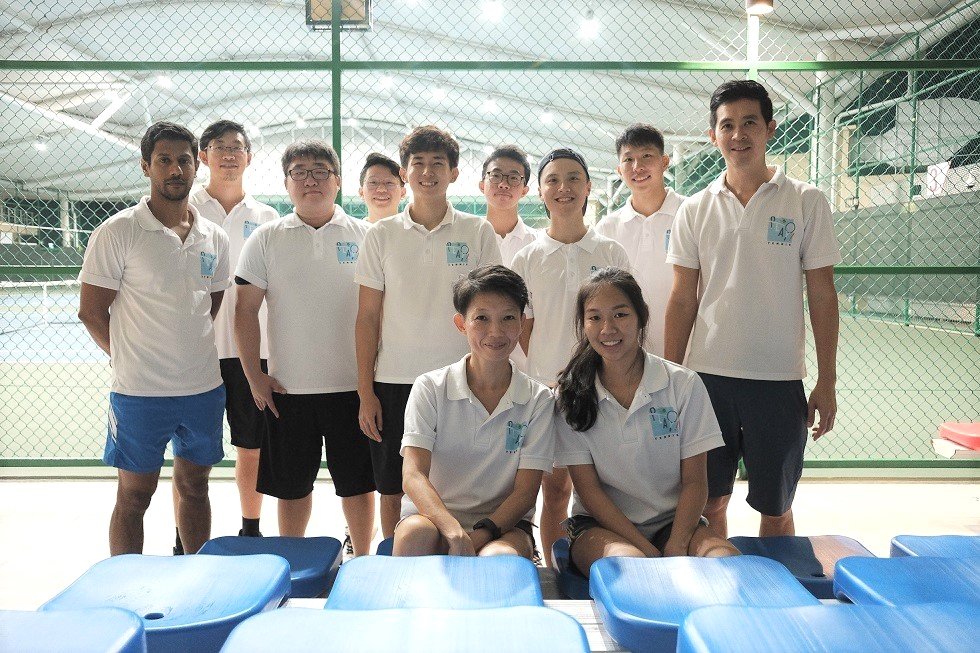
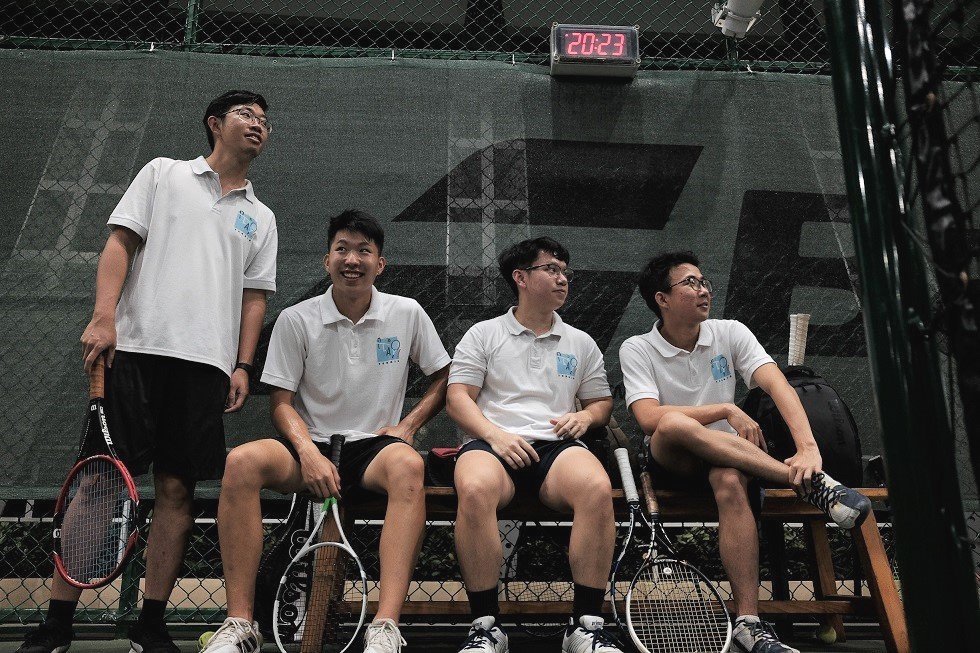
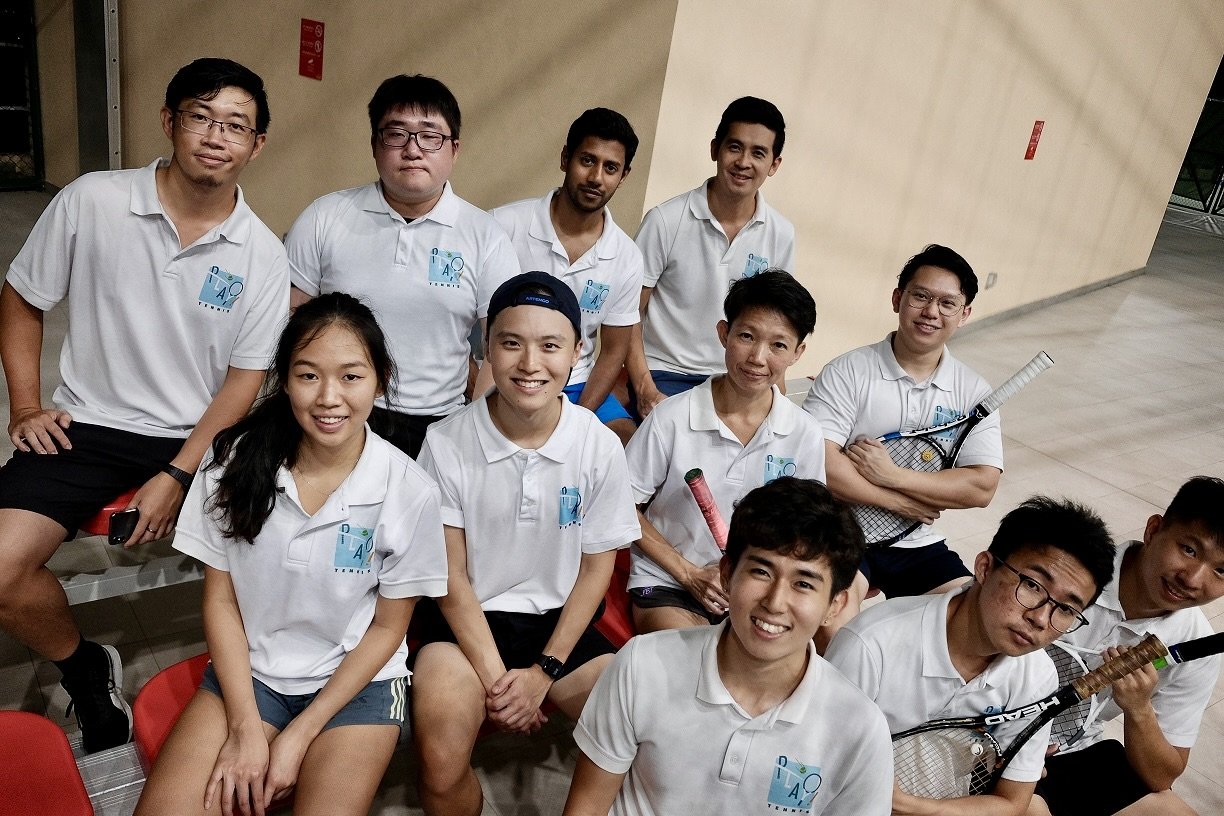
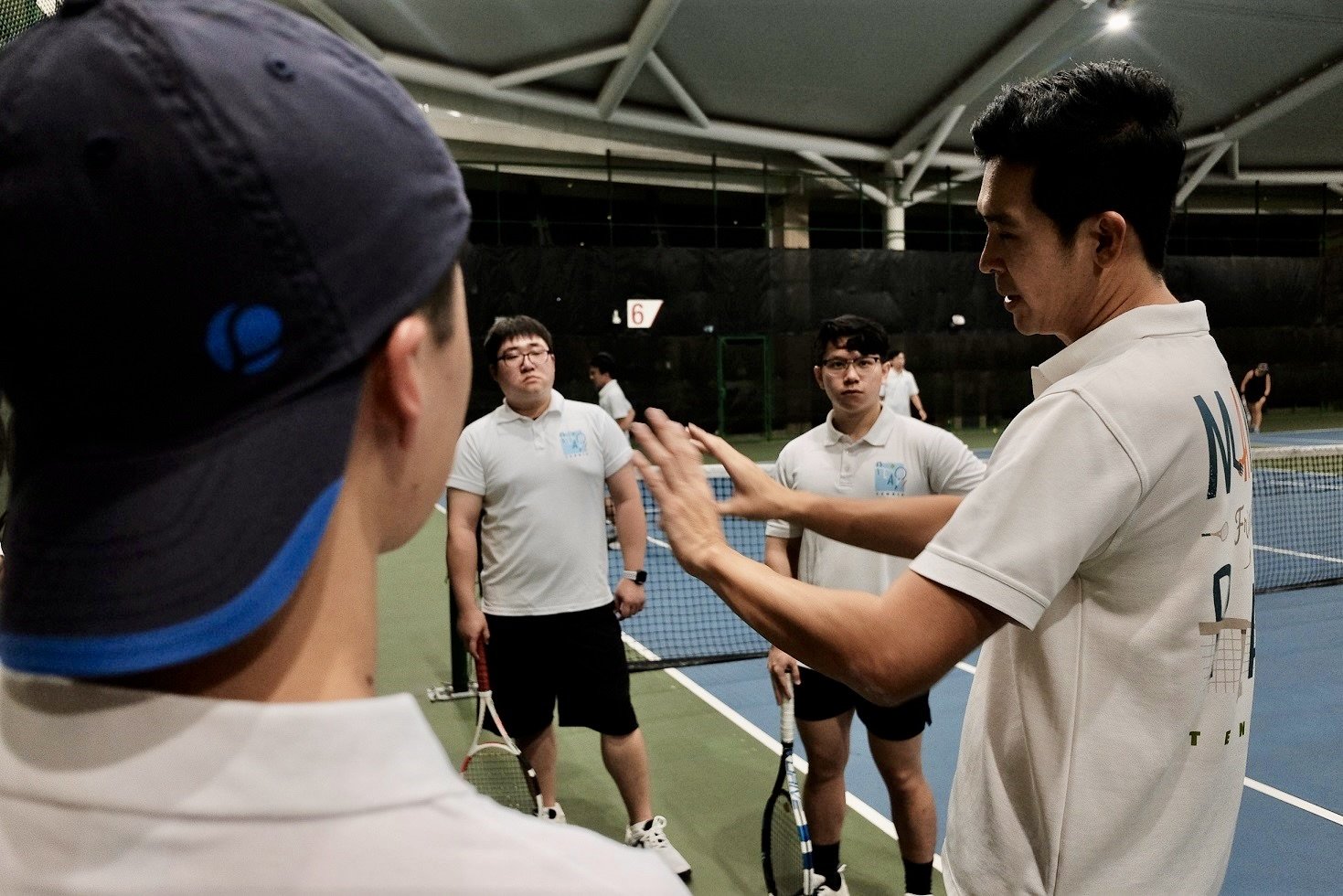
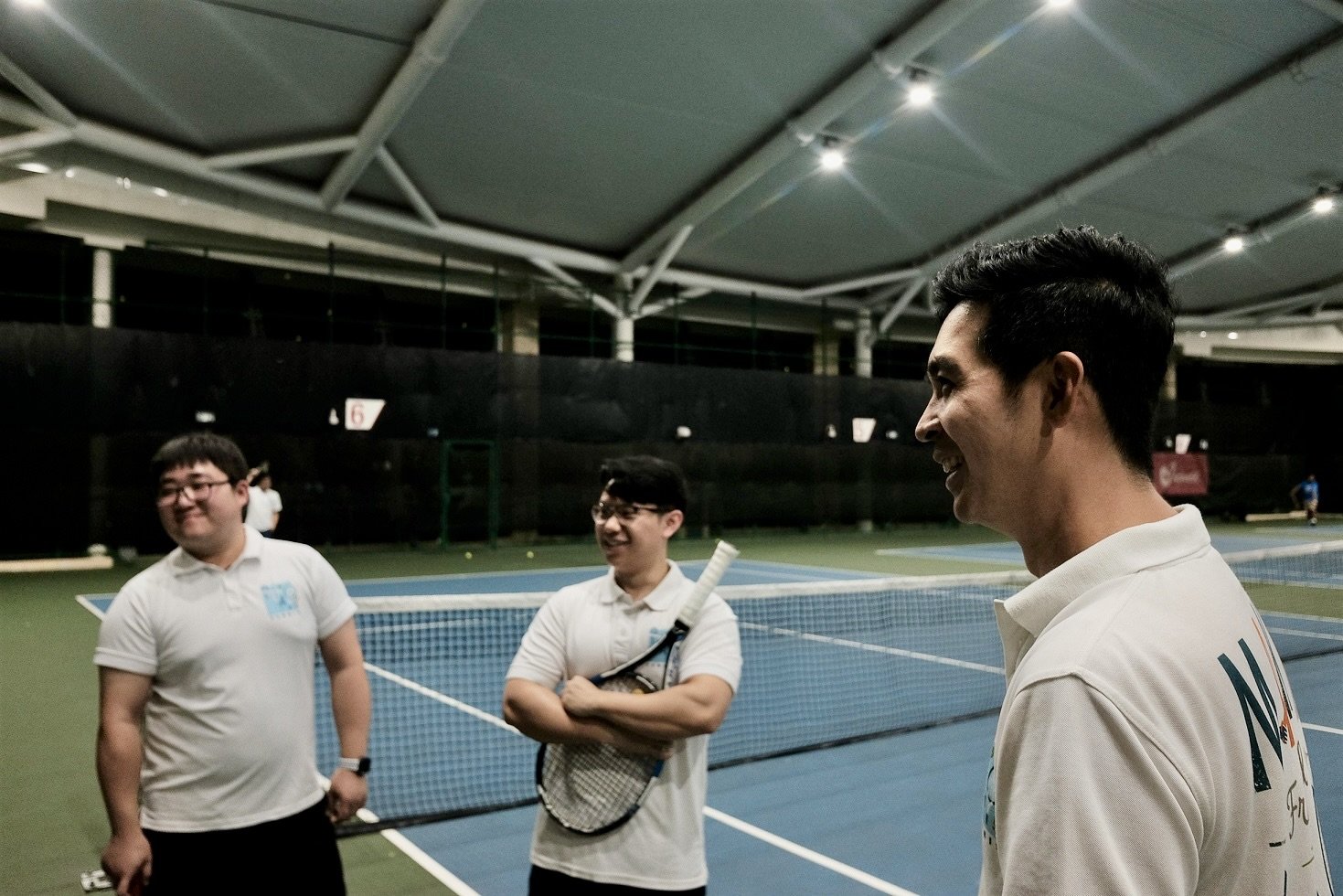
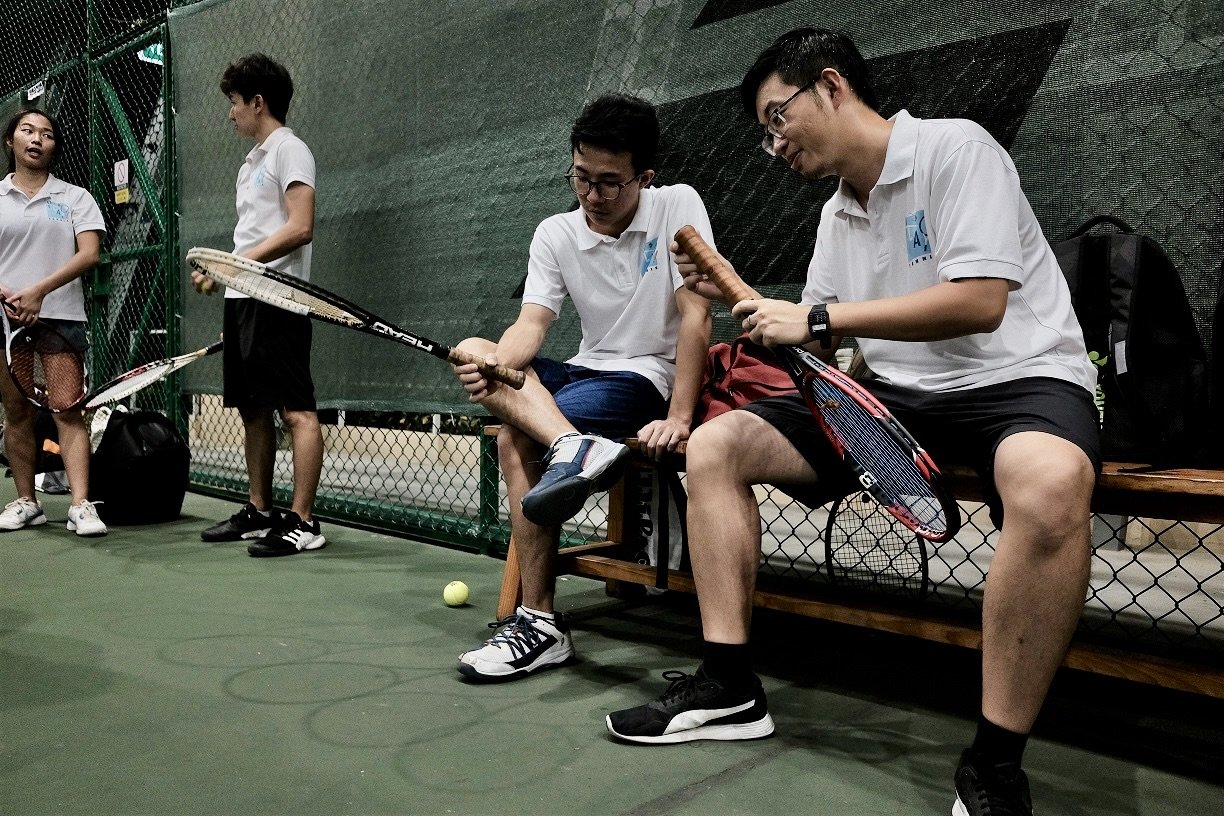
Coaching Course Outline
The course by Play! Tennis Singapore comprises six chapters: Role of the Coach, Prior Knowledge Required, Coaching Essentials, Elements of Safety, Lesson Plans and Evaluation. Together, these six chapters will provide you with a holistic training program. We understand that different coaches may have their own style of teaching, and we encourage coaches to be creative and to develop their own unique lesson plans with the principles they have learnt.
-
In the first chapter, Role of the Coach, we look at how you can develop your students into complete tennis players by addressing the four aspects of the game: technical, tactical, physical, and mental.
The technical aspect of tennis refers to all the movements needed to execute a proper tennis stroke, for e.g., the stance, backswing, contact point, and follow-through. Although this coaching course examines the other aspects of tennis as well, the technical aspect will be the main focus.
-
In the second chapter, Prior Knowledge Required, we address the need for coaches to be proficient in tennis in order to handle their lessons effectively.
You should already possess the basic skills such forehand, backhand, volleys and serves. You should also have a thorough understanding of the mechanics and technicalities of the strokes in order to guide your students. We list the skill sets that coaches should have.
-
We teach the skills essential to a coach: ball-feeding, error identification, communication, group management, and time management.
Ball feeding refers to the coach’s ability to feed balls accurately to all areas of the court. As drills are the bread and butter of many lessons, being able to master the skill of accurate ball-feeding is indispensable in the makings of a coach.
Error identification refers to the ability to identify and correct errors in the student’s strokes and game play. This requires a keen eye for analyzing the student’s entire execution, from footwork to follow-through, in order to detect errors and correct them immediately.
Another coaching essential, communication, is the ability of coaches to express themselves clearly using verbal and non verbal cues so that their students can understand them. Communication is essential in coaching as students require feedback to improve.
Group management refers to the handling of different types of classes that coaches might conduct. The ability to adapt the lesson plans to different levels of students is essential in ensuring that each lesson is appropriate for the students’ abilities.
Time management refers to the careful planning and allocation of time during lessons. Coaches should make use of time effectively and cut down on irrelevant activities or excessively long breaks.
-
In the fourth chapter, Elements of Safety, we look at court condition, attire, student information and environmental conditions.
Court condition refers to the elements in the tennis court such as the court surface, nets and benches. Checks have to be made in order to ensure that these elements do not pose a danger to players’ safety during the course of the lesson.
Attire refers to the dress code of the student and coach during the lesson. Players should have the appropriate attire such as tennis shoes and use proper tennis rackets. Using inappropriate gear can lead to injuries such as sprained ankles and wrists.
Student information refers to the background of the student. Coaches should be aware of the backgrounds of their students before commencing their classes. Recent illnesses or medical conditions should be brought up and addressed before commencing the lesson in order to avoid aggravating any pre-existing conditions.
Coaches should be aware of environmental conditions such as the weather before and during the lesson. Lessons may be cancelled or postponed due to inclement weather such as haze or rain. Light drizzles can be tolerated but should be carried on with caution and agreement from the student. Safety is the number one priority in all lessons. At the end of the day, students and coaches should be going home safe and sound.
-
Coaches need to have a lesson plan so that their court time with students is productive and meaningful. A solid lesson plan should have specific goals, a clear structure, and a wet weather program.
As a coach certified by Play! Tennis, you have the right to use our proprietary 12-lessons plan, or adapt it to the needs of your students.
-
In the sixth and final chapter, Evaluation, you will undergo a practical assessment by the head coach when you conduct an actual lesson. The evaluation will be a test of what you had learnt in the coaching course.
If you are overseas and unable to travel to Singapore, you may submit a video of a lesson that you conducted. You will be assessed based on the video and finally an online chat.
Completion of Course
Upon completion of the 3-hour course you will be awarded with a coaching certificate and become a part of the Play! Tennis Network (PTN), in which you will gain access to our resources such as class assignments and courts.
FAQs
-
Yes, our coaches are teaching at schools, condominiums, organisations, etc.
-
Yes, we offer an online course, so you do not have to join the course in person.
